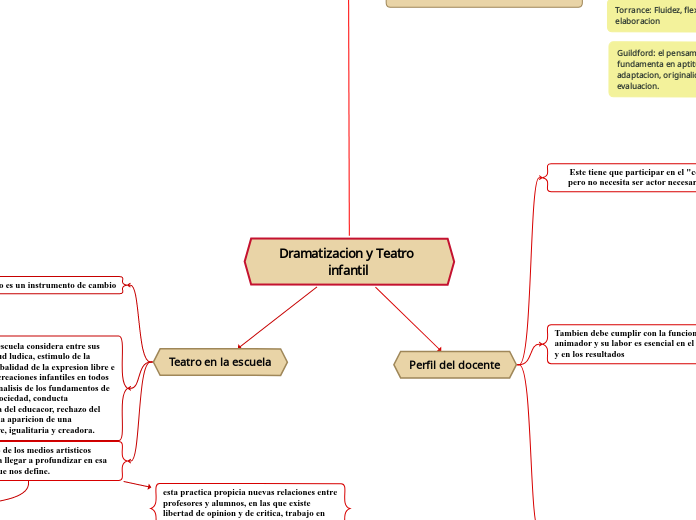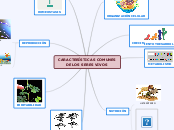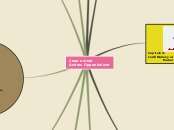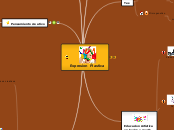Gloton y clero: el hombre sera el artesano responsable dde su destino
Lillian y virgil: todos los ninos son creativos
Moreno: solo sobrevivira quien se adapte al cambio, quien asuma roles nuevos
Ricardo Marin: el reconocimiento de las complejas areas de la educacion en esta materia es una de las tomas de conciencia mas fecundas de la psicopedagogia moderna
Torrance: Fluidez, flexibilidad, originalidad y elaboracion
Diferentes pensamientos acerca de la creatividad
The setting (time & place) of a story can change throughout the plot.
Guildford: el pensamiento creativo se fundamenta en aptitudes mentales como la adaptacion, originalidad, asimilacion y evaluacion.
Your story can take place wherever your imagination will take you to.
For example: in an elevator, in an enchanted forest, etc. Don't forget to give details of the environment each time the setting changes, otherwise, the story can be confusing. Also, mention the seasons as each of them has unique weather and events.
Poveda: "la creatividad es la facultad del pensamiento divergente que ofrece formas nuevas mediante la recombinacion y elaboracion de los elementos de las formas ya existentes presentadas por los sentidos y las demas facultades"
The time of the story can also change. It can describe the event of a single day or can include an entire year's plot. Anyway, don't forget to mention it.
Dramatizacion y Teatro infantil
To name your story, you have to think about the overall message and what you want your audience to understand from the story. Also, make it relevant and easy to remember.
Teatro en la escuela
The ending of a story is essential. We all know that if the ending is weak, what happened before loses its importance. So make it unpredictable, but fair. A resolved ending answers all the questions and ties up any loose threads from the plot.
El teatro es uno de los medios artisticos destacados para llegar a profundizar en esa otra realidad que nos define.
La dramatizacion y el teatro de los ninos son instrumentos en manos de los educadores con los que pueden obtener un amplio beneficio
Gracias a la experiencia directa e indirecta del hecho teatral se ayuda al nino a desarrollar capacidad y cualidades que le permitiran enriquecer y afirmar su personalidad
El teatro favorece el proceso de maduracion infantil en aspectos decisivos de la formacion que afectan a diferentes dimensiones: cognitiva, sensorial, afectiva, comunicativa, estetica, creativa, sexual, social y moral
esta practica propicia nuevas relaciones entre profesores y alumnos, en las que existe libertad de opinion y de critica, trabajo en comun, clima amistoso y respetuoso
El teatro en la escuela considera entre sus premisas: actitud ludica, estimulo de la creatividad, globalidad de la expresion libre e impulso de las creaciones infantiles en todos los lenguajes, analisis de los fundamentos de la escuela y la sociedad, conducta transformadora del educacor, rechazo del autoritarismo, la aparicion de una humanidad libre, igualitaria y creadora.
This is the closure section of the story.
See examples of possible outcomes below:
- all problems have been solved
- it's clear how each one of your characters ends up
- your main character is transformed by the challenge
El teatro es un instrumento de cambio
This is the moment when the main character surpasses the last obstacle and finally faces their greatest challenge.
The climax usually follows one of these patterns:
- realization
- resolution
- choice
Type in your answer.
"El teatro es una rebelion contra el orden establecido"
la escuela oficial es conservadora y esta al servicio de los valores dominantes en la sociedad
En el teatro el trabajo en grupo fomenta la sociabilidad y hace que tomen conciencia de la posicion en la que estan respecto de sus companeros
Perfil del docente
The middle of the story is where you add layers of complications that will lead to the end. Reveal more about the character's journey. Did their personality go through changes? How did they overcome the challenges? And as you build up the story’s central conflict, make it more personal to that character. Also, from the middle act, you have to lead into the final act.
Criterios
There wouldn't be any tension and excitement in your story if there weren't any obstacles in your character's way.
Diferentes criterios acerca del perfil docente
A story is nothing more than a character overcoming a series of difficulties to reach the desired goal. Obstacles usually create suspense and conflict. In overcoming obstacles, there is growth: weak becomes strong; hatred turns into love; sadness into happiness; wrong into right; lies into truth; or evil becomes good.
See a few examples below:
- stopping a meteor
- finding a killer
- finding love
Alberti senala que conocimientos debe tener el profesor de la escuela o el profesional ajeno a ella: El conocimiento psicologico del sujeto , El conocimiento del ambiente socio-economico-cultural, El conocimiento de la institucion escolar , El conocimiento experimental de la formacion en expresion dramatica
Gisela Barrer senala 3 aspectos importantes: 1)El conocimiento de la disciplina 2)La metodologia 3)El dominio de la situacion .
Tambien debe cumplir con la funcion de animador y su labor es esencial en el proceso y en los resultados
Your character(s) need(s) motivation in order to solve the challenge(s).
Los educadores no se animan a introducir la dramatizacion porque estos mismos no son buenos interpretes
Secondary characters might also have motives that lead them to cross paths with the main character or which might trigger them to help the main character.
El buen animador de la expresion dramatica es el que utiliza la CREATIVIDAD
El buen animador de la expresion dramatica es una persona que ayuda a los ninos a superar el miedo de su propia imaginacion
Why does your character need to confront this challenge? What does he/she expect to accomplish by solving it?
See a few examples:
- will marry in 3 days
- can fix the mistakes of the past
Intervenciones didacticas: Tecnica de aproximacion- tecnica de socializacion- tecnicas de participacion- tecnicas liberadoras- tecnicas descondicionantes- tecnicas de conocimiento- tecnicas de la creatividad y tecnicas de concentracion
las funciones y tecnicas didacticas que el profesor-animador debe afrontar son: Organizar y orientar la actividad, observar a cada nino para conocer sus necesidades y satisfacerlas, formular los temas del juego y ofrecer consignas claras, procurar que se fije y diversifiquen los objetivos, preparar los materiales, graduar las actividades para que resulten estimulantes, repartir responsabilidades y aceptar sugerencias, y alentar un ambiente alegre y un buen clima.
Este tiene que participar en el "como si", pero no necesita ser actor necesariamente.
Each story has a main character and that character usually needs to solve a problem or challenge. The character's challenge is the one that creates tension throughout the story.
Para el juego dramatico no es necesario tener aptitudes especiales.
Type in any other challenges which other characters in the story need to face.
Quien debe ensenar tetro en la escuela
In most stories, there are 3 challenges. The number 3 is a mystical number symbolizing completeness. Try to come up with interesting challenges with which your character needs to struggle.
See a few examples below:
- turns into a werewolf at night
- is sent back in time
Artistas?
Pedagogos?
Creatividad
In the beginning of the story (or the exposition), you will need to introduce the setting and characters. You might also want to introduce the main conflict. This part of the story is important because it gives the reader necessary background information and maybe even a first insight into a character’s personality.
"Es el resultado de una combinacion de procesos o atributos que son nuevos para el creador"
Para que exista basta con que exista originalidad para quien lo realiza
Sirve como factor de equilibrio personal e instrumento para la integracion social
Los estudios psicologicos dicen que la creatividad se trata de una aptitud diferente de inteligencia
Test de consciente intelectusl
pensamiento convergente
pensamiento divergente










